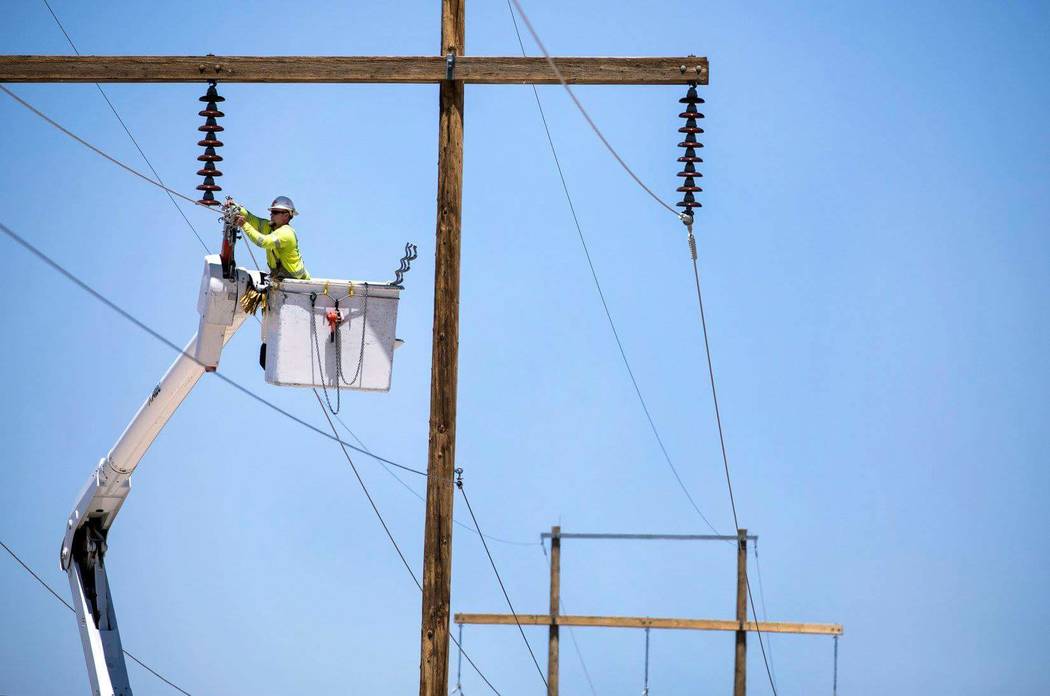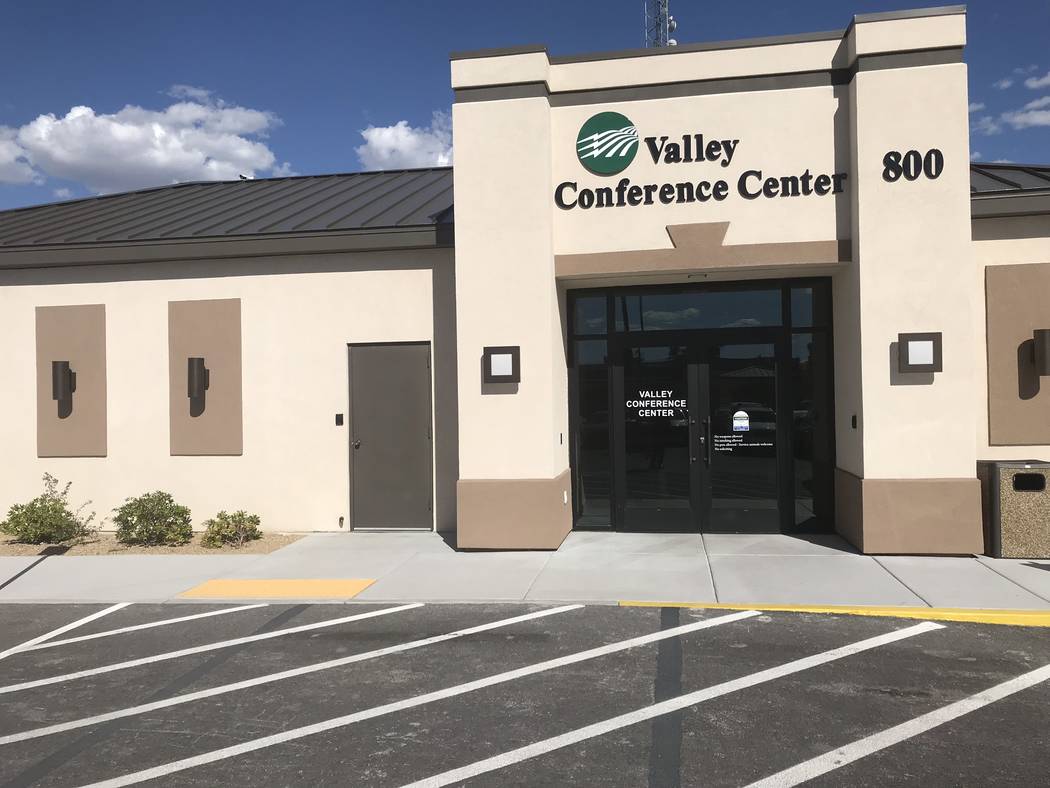Column: VEA Board, CEO address issues surrounding rate increase
Editor’s note: This column is from the Valley Electric Association Board of Directors and CEO Angela Evans.
By now many of Valley Electric Association’s members have read details on the rate increase and job reductions. We have tried to communicate to our members about the thorough review of the co-op’s operations following the interim appointment of CEO Angela Evans. The review consisted of re-evaluation of priorities, strategies, finances, budget, staffing, the scope of work performed by external consultants, and operational expense levels. Angela has continued to right-size the cooperative even after becoming permanent CEO.
Members have since asked us to explain “why is it that VEA is going to raise rates after the sale of the 230kV transmission line?” Some members have assumed that there must be missing funds from the transmission sale. The purpose of this letter is to address these very relevant questions.
Immediately upon appointing Ms. Evans as interim CEO, the Board engaged the accounting firm of Hinton Burdick to conduct a transitional audit of financial activities (internal controls, cash activity and expenditures) for the period of January 1, 2016 to July 31, 2018.
From the Board’s perspective, a forensic review of VEA’s financial activities was critical. Hinton Burdick found no wrongdoing or mismanagement of funds – including the funds resulting from the transmission sale. Specifically, as to the worry that there must be missing funds, Hinton Burdick found “No significant transactions lacking supporting documentation, or of an unidentifiable nature, were noted.”
A copy of the letter regarding the forensic audit can be found on the VEA website.
Now let’s talk about how VEA has managed the funds from the transmission sale.
In September 2016, the Board approved the sale of the 230 kV transmission line. The proceeds from the sale totaled $200.6 million. The numbers below account for every dollar of the proceeds and is based on the information that was audited by the third-party independent auditor:
230-kV (Cash at Close) – $200.6M
■ Payoff 230-kV Debt – ($80.9M)
■ 230 Sale Closing Costs – ($2.7M)
Net Cash to VEA – $116.9M
■ Held for VEA Foundation – ($5M)
■ Rate Stability Fund – ($30M)
■ Cash to Members – ($18.2M)
Remaining Cash to VEA – $63.8M
■ Purchase Power Agreement, June-2018 – ($59.9M)
NET PROCEEDS as of 31-December-2018 – $3.8M
■ Cash at Close. VEA received $200.6 million for the sale of the transmission sale to GridLiance West.
■ Transmission System Debt. Nearly $81 million was used to pay the outstanding debt on the transmission system.
■ Transaction Costs. Approximately $2.7 million in closing costs was paid to brokers, bankers, and lawyers who helped close the sale. (No proceeds were paid to any current or former employee of VEA as part of the closing costs.)
■ Net Cash to VEA. Nearly $117 million.
■ VEA Foundation. $5 million was set aside for a future community center. It was never the Board’s intent for VEA to lead the development of the community center even if the previous management wanted to provide such leadership. VEA will continue to support the committee’s work. Meantime, VEA pledged to contribute funds and property to the effort, when the project becomes a reality and when members are in agreement.
■ Rate Stability. $30 million was set aside to offset future rate increases.
■ Cash to members. $18.1 million. Most members received $579 following the sale, plus an additional check for patronage capital related to the sale.
■ Remaining Cash (as of Dec. 31, 2017). Nearly $64 million. Used to fund 2018 operations, repayment of additional debt, and the buyout of our base load purchase power agreement.
■ Purchase Power Agreement. Approximately $60 million. With approval from the Board, VEA used the $30 million rate stability fund in addition to approximately $29 million of the remaining cash to buy down long-term power contracts that were not favorable to VEA. VEA kept energy rates stable during the recession of 2008 and the decade-long recovery by managing the Co-op’s power purchase contracts.
In order to keep rates from rising to member-consumers during the recession, the cost of expensive power supply contracts was pushed into the future. This strategy used by the previous CEO, known as “blend and extend,” involves maintaining power at lower rates for a period of time with a requirement to pay much higher power prices in the future. Examination of energy prices showed that pricing using the blend and extend mechanism was no longer a good deal.
Unless we exited this contract in 2018, we would experience energy price increases from $50/MWh to $69/MWh in 2019. It cost nearly $60 million to exit contracts, but the savings range from $359,100 to $371,070 per month currently, and into the foreseeable future, depending on kilo-watt hour consumption. The new power deal started delivering of power in June 2018 and cost us $35.75 MWh, or slightly more than half the cost of the power that was scheduled to be delivered to VEA this year.
At Valley Electric Association we have refocused our mission to demonstrate that we are committed to improving the quality of life of our communities and pledge to empower our communities to achieve their potential. We will continue to reliably serve our communities in the spirit of the Seven Cooperative Principles.
Ken Derschan is President of the VEA Board of Directors, Angela Evans is CEO, David Hall is director Amargosa Valley, Richard Johnson is director Beatty, John Maurer is director Fish Lake, David Dawson is director Pahrump Valley North and Pete Gazsy is director Pahrump Valley South.
Upcoming
Check for more from Valley Electrical Association in a future edition of the Pahrump Valley Times and pvtimes.com












